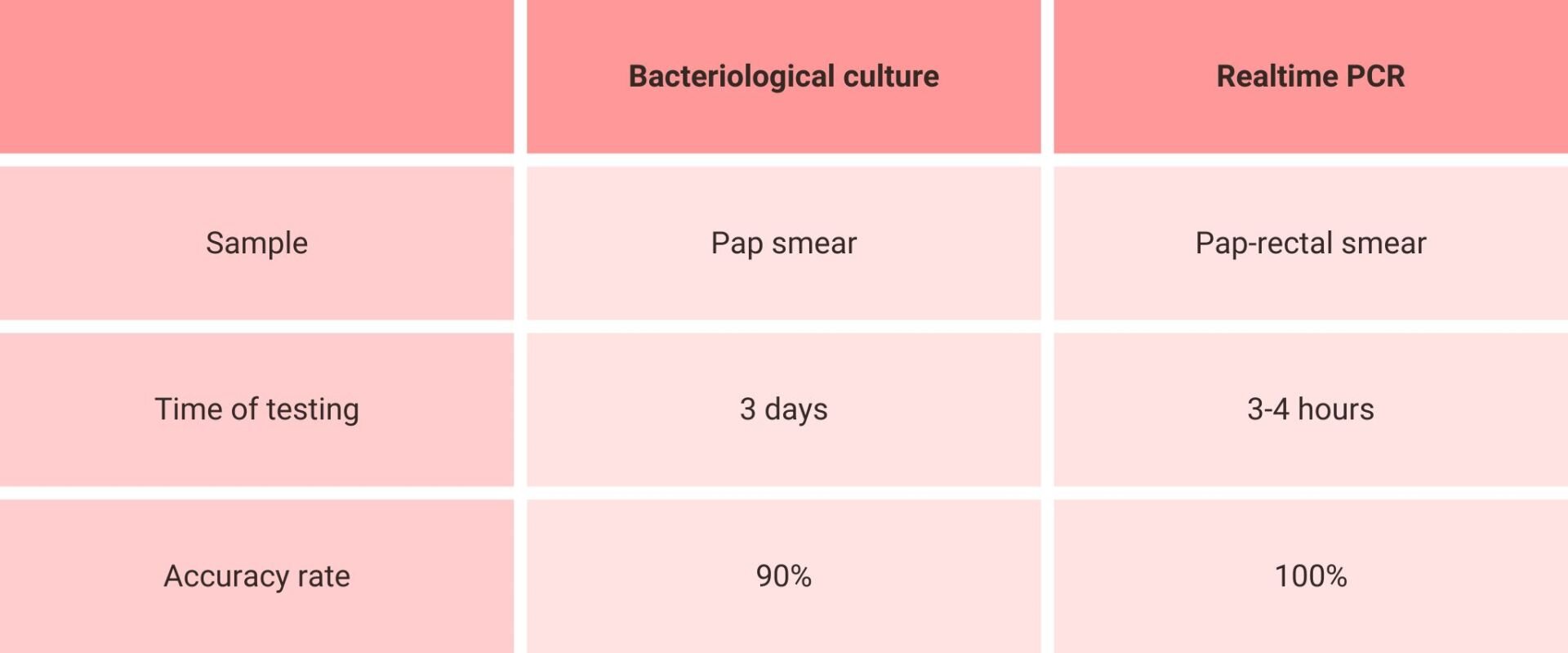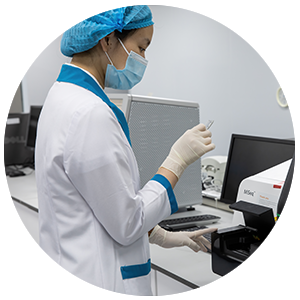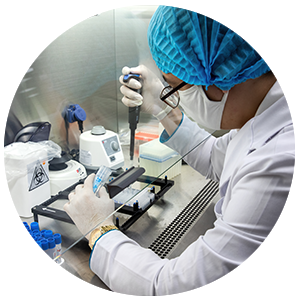Despite being very rare in pregnant women, GBS can cause serious consequences to the fetus, and can even cause death in the newborn if not detected and treated promptly. Therefore, GBS testing becomes a routine test for every pregnancy.
.
WHAT IS GBS?
GBS (also called group B streptococcus), is a type of bacteria that lives in the vagina and rectum. Many women carry GBS but do not have any symptoms. GBS can be passed to the fetus during birth. Most babies who get GBS from their mothers have no signigicant problems. But a few may have weaker immune system. GBS can cause serious health problems and can even be fatal in newborn babies.
.
GBS is not a sexually transmitted disease. This bacteria is commonly found in the intestines, vagina and rectum.
.
WHEN SHOULD PREGNANT WOMEN DO GBS TESTING?
GBS can usually be detected by a prenatal screening test performed between 36 weeks and 38 weeks of pregnancy. Test samples are taken from the vagina and rectum of pregnant women. The sample is then taken to the laboratory for culture to detect the presence of GBS. Results are usually available after 1 to 2 days.
.

.
METHODS OF DIAGNOSING GBS
Currently, GBS screening tests can be performed using two common methods: Bacterial culture and Realtime PCR.
.

.
(1) Culture testing may give false negative results due to: Patients using antibiotics or vaginal medications. The technician's skills are not guaranteed, reducing the density of living bacteria.
(2) 100% accuracy even in cases where the bacteria are dead and have not yet been eliminated from the body.
.
HOW TO PREVENT/ AVOID GBS?
GBS testing is considered completely harmless to pregnant women and their fetuses. It is also effective in early detection for treatment to prevent the baby from being infected with GBS.
.
Group B streptococcus infection during pregnancy will cause urinary tract infections, infections of the fetus and amniotic fluid, sepsis and can cause infection of the uterine lining in pregnant women.
.
Children infected with GBS will have symptoms such as septicemia, pneumonia, meningitis, respiratory or cardiovascular problems, unstable blood pressure and digestive system.
.
The presence of GBS bacteria in the body can vary from time to time, as they naturally live in the digestive system, so pregnant women are recommended to be tested for GBS during all pregnancies. . Symptoms of GBS infection include: Premature rupture of membranes, fever during labor, urinary tract infection due to GBS during pregnancy.
.
TREATMENT FOR GBS INFECTION
If a pregnant woman is positive for GBS, it means her body is carrying GBS bacteria. Health care providers will recommend that pregnant women infected with GBS take intravenous antibiotics to prevent the disease and also to prevent the fetus from being infected with GBS.
.
Taking antibiotics by mouth before labor will not be effective in protecting pregnant women and their babies from GBS, because taking them will not stop the rapid spread of GBS to the baby during pregnancy. birth process.
.
If a cesarean section is performed and the amniotic sac is still intact (water has not broken), the mother does not need to take antibiotics.
.
DEVELOPMENTAL STAGES OF GBS IN NEWBORNS
Early onset means signs and symptoms are manifested in the fetus during birth. Usually, children will have symptoms of bloodstream infections, pneumonia and meningitis or have respiratory and digestive system problems. In this case, the pregnant woman and fetus will be prescribed intravenous antibiotics.
.
Late onset means signs of GBS infection appear after 1 week or several months after birth. Signs may include meningitis. Whether it occurs at any early or late stage, GBS infection in newborns is still very worrying for the baby's development.
.
GBS TESTING AT PHACOLAB
- Specimen: Pap-rectal smear (Pregnant women can collect samples while going for prenatal check-ups)
- Implementation method: Real-time PCR
- Results return time: after 24 hours from the time of receiving the sample
.





